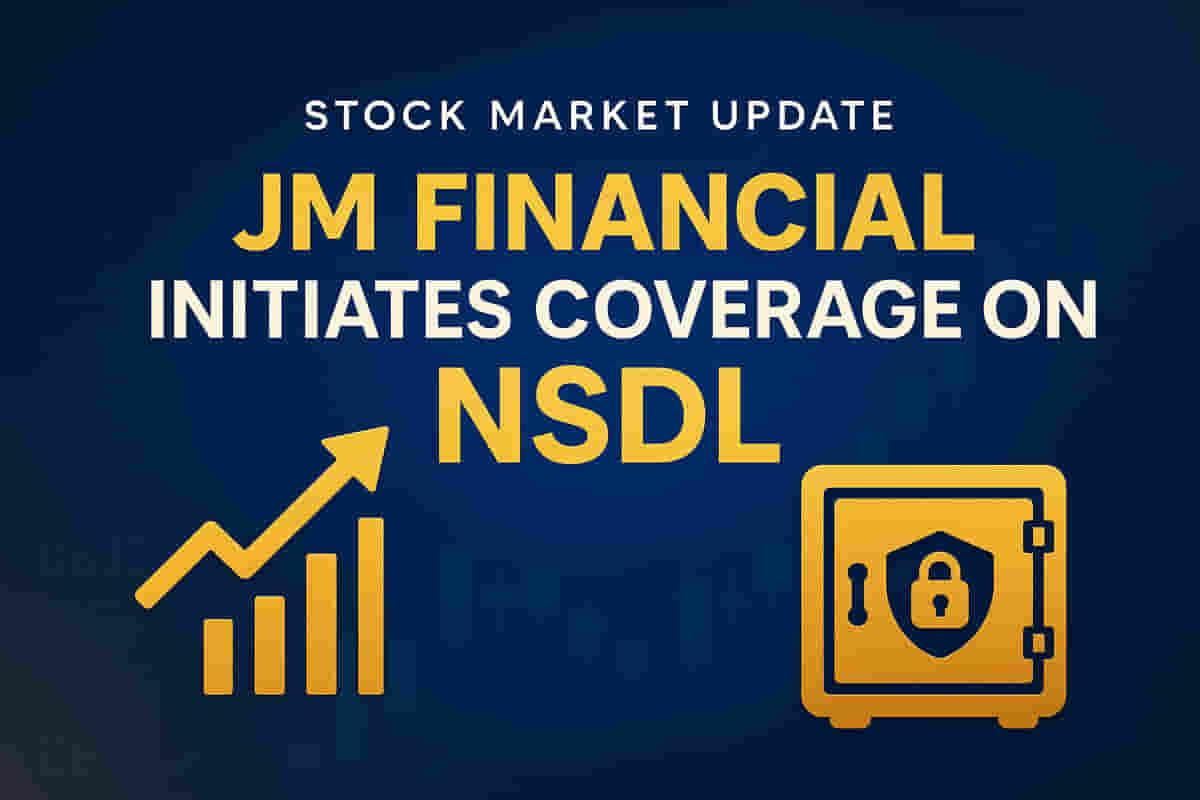JM Financial Initiates Coverage on NSDL with 'Add' Rating and Rs 1,290 Target Price
Brokerage Reports
|
31st October 2025, 9:31 AM

▶
Short Description :
Detailed Coverage :
JM Financial has initiated coverage on National Securities Depository Ltd (NSDL) with an 'Add' recommendation and set a target price of Rs 1,290 per equity share. This target implies an upside potential of 11.6% for investors. The brokerage's investment rationale is based on NSDL's strong, stable cash flows and its lower volatility profile when compared to traditional stock exchanges.
NSDL holds a commanding market leadership position in India's depository space. As of FY25, it commanded a 66% market share based on demat-based transaction settlement value, facilitating settlements worth Rs 103.2 lakh crore. Furthermore, NSDL holds 86.8% of all securities in dematerialised form by value, with total assets under custody reaching approximately Rs 464 lakh crore.
A key factor driving NSDL's growth is its distinct client base, which has a significantly higher proportion of institutional investors, corporations, and High Net Worth Individuals (HNIs). The average value per account at NSDL was Rs 1.18 crore as of March 2025, substantially higher than its peer CDSL, positioning NSDL for large-value transactions and yielding greater stability.
NSDL has successfully transformed into a diversified financial infrastructure platform. Core depository operations now account for only 44% of its total consolidated revenue, with the remaining 56% derived from subsidiaries such as NDML and NSDL Payments Bank (NPBL). NPBL alone contributed 51% of consolidated operating revenue in FY25, reducing reliance on market cycles and enhancing cash flow visibility.
The depository sector in India operates as a natural duopoly, with NSDL and CDSL being the only players since 1999, supported by strict SEBI regulations and high entry barriers. NSDL is set to benefit from the rising participation in India's equity markets and the ongoing financialization of household savings.
JM Financial projects robust future growth for NSDL, estimating a Compound Annual Growth Rate (CAGR) of 11% in revenue, 18% in EBITDA, and 15% in net profit between FY25 and FY28. These growth projections, coupled with operational efficiencies and technological advancements, are expected to further improve NSDL's EBITDA margins.
Impact This initiation of coverage by a prominent brokerage house on NSDL, detailing its market dominance, diversified revenue, and growth prospects, is likely to positively influence investor sentiment towards NSDL. It reinforces the attractiveness of the depository sector and may lead to increased investor interest, potentially impacting NSDL's future market valuation and investor perception, and indirectly highlighting the sector's potential. Rating: 8/10.
Difficult Terms: Demat: Short for dematerialisation, the process of converting physical share certificates into electronic form. Volatility: The degree of variation of a trading price series over time, usually measured by the standard deviation of logarithmic returns. In simple terms, how much the price of something goes up and down. CAGR: Compound Annual Growth Rate, the mean annual growth rate of an investment over a specified period of time longer than one year. EBITDA: Earnings Before Interest, Taxes, Depreciation, and Amortisation, a measure of a company's operating performance. Duopoly: A market structure in which there are only two firms that produce similar products. Financialising household savings: The process where individuals increasingly move their savings from traditional assets like physical gold or real estate into financial assets like stocks, bonds, or mutual funds. Securities: Financial instruments that represent ownership or debt, such as stocks and bonds. Subsidiaries: Companies controlled by a parent company.